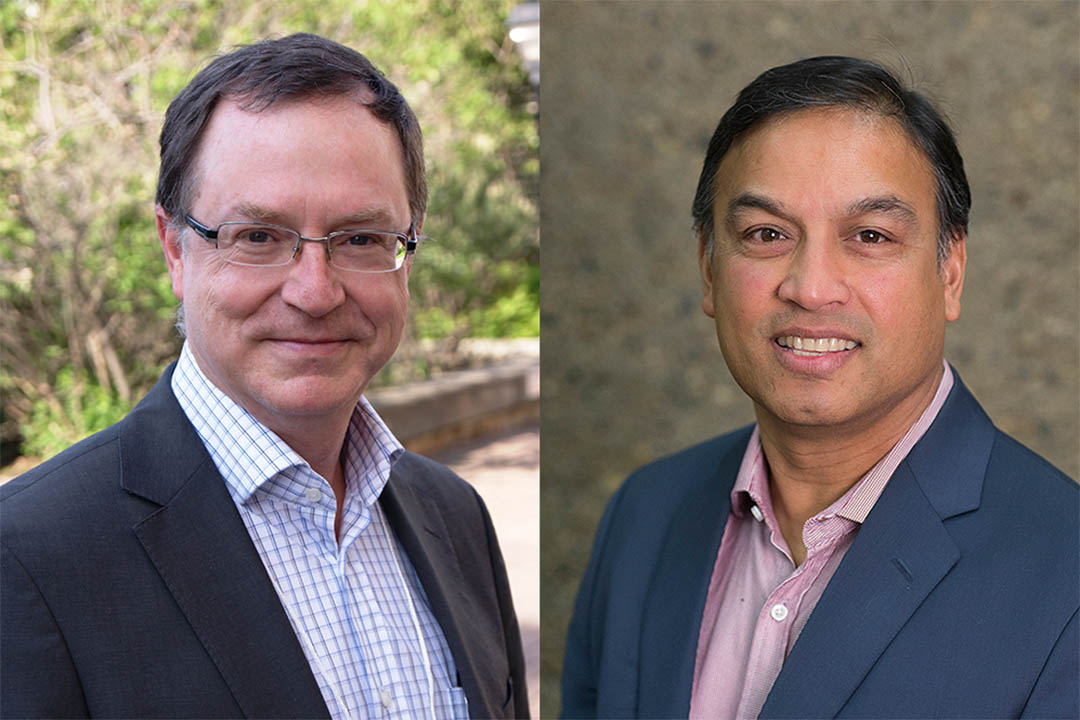
New funding helps University of Saskatchewan researchers take aim at long COVID
SASKATOON – University of Saskatchewan (USask) researchers are part of a Canada-wide consortium awarded $20 million by the Government of Canada to pursue research into “long COVID,” also known as post-COVID-19 condition (PCC).
Announced today, the funding over five years will support the Post COVID-19 Condition Research Network (called Long COVID Web), to create tools to diagnose, treat, and rehabilitate people with all forms of long COVID.
“There will be a substantial increase in long COVID research capacity within Saskatchewan,” said Dr. Gary Groot (MD, PhD), professor of community health and epidemiology, and surgery at the USask College of Medicine, and co-leader of population health and modelling research for Long COVID Web. “We are probably going to really punch above our weight.”
Long COVID refers to a wide array of symptoms people experience three months or more after their initial SARS-CoV-2 infection.
“It impacts at least 200 different body systems,” said Groot. “It’s emerging (that) there are at least three clusters of symptoms—neurological symptoms, respiratory symptoms, and cardiac symptoms—and people can be in more than one cluster, and there’s also the mental health aspect due to the illnesses associated with long COVID.”
The network is led by researchers and clinicians from University Health Network, University of Toronto, Université de Sherbrooke, and University of British Columbia, and includes more than 250 researchers and collaborators.
In Saskatchewan, the new funding will support ongoing research on Long COVID and hiring dozens of graduate students, post-doctoral fellows, and researchers, and lead to direct health benefits for people in Saskatchewan.
“Long COVID will affect a significant percentage of the population, and then there's so much that we don't know,” said Groot. “Anything we discover and learn in the (Long COVID) web, I will be able to take directly to the Saskatchewan Health Authority and to the Ministry of Health.
“We have really strong connections with our ministry colleagues, so I think the likelihood of things we learn being implemented in Saskatchewan are extremely high.”
An estimated 15 per cent of all people who contract COVID-19 report having symptoms three months or more after their initial SARS-CoV-2 infection—1.4 million people in Canada—according to a recent report on post-COVID-19 condition from Canada’s Chief Science Advisor also released today.
The comprehensive report titled “Post-COVID-19 Condition in Canada: What We Know, What We Don’t Know and a Framework for Action,” was led by an expert task force including USask College of Medicine community health and epidemiology professor Dr. Nazeem Muhajarine (PhD), and involved consultations with subject experts, clinical experts, international experts, public health experts, and people who are living with long COVID.
“We are still at a very, very early stage of doing work in long COVID in Canada,” said Muhajarine. “The report really sets up the work that we need to do.”
The report makes recommendations for addressing long COVID in clinical practice and research, for broad changes in socio-economic policy, and for foundational changes in infrastructure and systems in responding to post-infection chronic conditions and co-ordinating across jurisdictions.
“Much like with COVID itself, for us to see progress in this area quickly, there needs to be a co-ordinated and concerted effort across the research landscape,” said Groot.
-30-
For media inquiries, contact:
Victoria Dinh
USask Media Relations
victoria.dinh@usask.ca
306-966-5487
